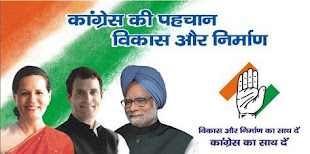Star News Agency
New Delhi. Farmers from every State/Union Territory in India are converging in New Delhi but this time there is a difference! They are being felicitated for their exemplary work in the field of agriculture in a function being held tomorrow in New Delhi by Agriculture Minister, Shri Sharad Pawar. These are 101 enterprising men and women farmers from remote parts of the country, who by sheer dint of their innovation and hard work have been more than inspirational for others. The Department of Agriculture & Cooperation has documented their success stories in shape of a Coffee Table titled “Harvest of Hope”. This book also is being released in a gathering where focus of attention is going to be the true life characters from this compilation.
From Kashmir to Kanyakumari and beyond, this book maps more than a hundred success stories of small and marginal farmers who have transformed their lives by adopting new and green technologies in cultivation. Struggling initially against a plethora of problems such as small holdings and increase in the cost of inputs, or battling ills such as widowhood and natural calamities of Tsunami proportions, these turnaround tales are simply stirring.
As one turns the pages of this book, one comes face-to-face with the hitherto nameless force that nurtures our land. One realizes just how laborious these growers really are, and just how extraordinary their will to improve is, even when all odds appear to be stacked against them. One marvels too at the native intelligence, common sense and innovative spirit of the salt of the earth, often handicapped by poverty and lack of formal education.
The key to the reinvention of lives towards a rosier future has been, without exception, the acquisition of new and technical knowledge without forsaking traditional wisdom, and an innate ability for intelligent adaptation, given constraints such as weather and location. Here the farmers have taken advantage of the various Central and State government initiatives and tailored the same intelligently to their geographical location. Certain non-governmental organisations, especially in states like Sikkim and Orissa have also been very helpful in providing help. These farmers have adopted unique cropping practises raising output in dramatic percentages. Some of these farmers have also joined together in collectively selling their harvest at the best possible rates by cutting out greedy middlemen.
Drip irrigation, use of neem based pesticides, organic farming and vermi- composting, are just a few of the cost saving measures that also protect the earth, yet improve both quality and quantity of produce. The frugal farmer is wearing a green hat today, in keeping with global concerns about depletion of natural resources and the poisoning of Mother Earth. He is economising not only in water, but chemical fertilizers today, in order that our children stay healthy and never go hungry. For instance, the cotton farmer, plagued by insects that devour the bolls of standing cotton, is reducing chemical pesticides yet tackling the problem by building bird perches on his fields to attract birds that feed on the insects.
The path-breaking interventions covered by the true life stories in this book are not limited merely to crops, but cover the entire gamut of rural vocations. Those with very small holdings have learnt to grow mushrooms or flowers for export such as the oriental lily {lilium}. Others explore avenues as diverse as poultry and fish farming, floriculture and fruit orchards, oilseeds and pulses, and cotton and ayurvedic herb cultivation. One farmer, with the courage for breaking new grounds in Himachal Pradesh has taken to the exotic subject of the cultivation of freshwater pearls.
In keeping with the demands generated by a liberalised economy and a palate hungry for new tastes, farmers are pandering to adventurous urban taste- buds by cultivating new crops like passion fruit, broccoli and strawberries. They have vastly benefited by thus thinking out-of–the–box. Indeed, changes in eating habits have generated new livelihoods for the farmer.
Struck by calamity when all seems lost, such as when the Tsunami ravaged the Andaman and Nicobar Islands, it is perhaps ironical that from such terrible circumstances spawns the hope for a better tomorrow. As time has proved, the morrow has indeed been hopeful, for with State assistance, many Tsunami affected farmers have learnt to restructure their lives and homes and are today more secure than even before the disaster struck. Perhaps more than others, the title of this book is to tailor made for them.
Nor are these rural folk stingy in the sharing of this good fortune. Once practically subsisting below the poverty line, the bounties reaped after acquiring the benefits of new technology, are shared generously with the rest of the village, resulting in the benefit of the greater good and establishment of a once impoverished man into a pillar of society and strength.













.jpg)













0 Comments